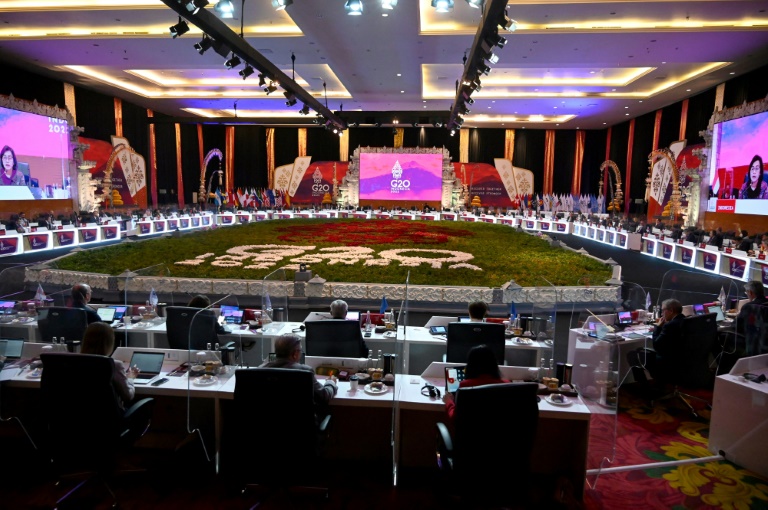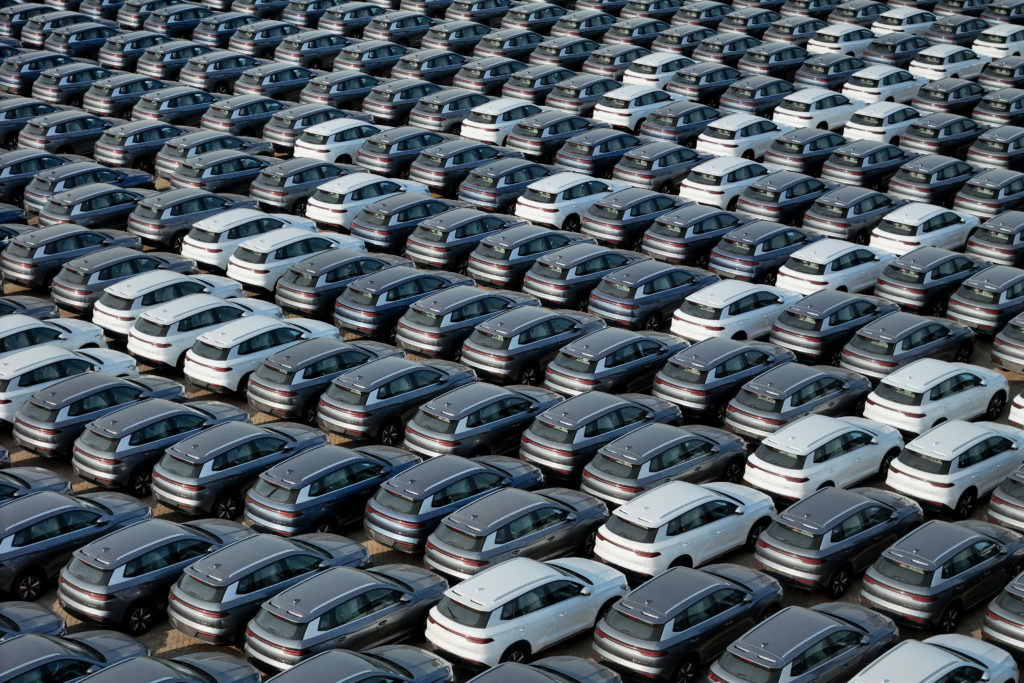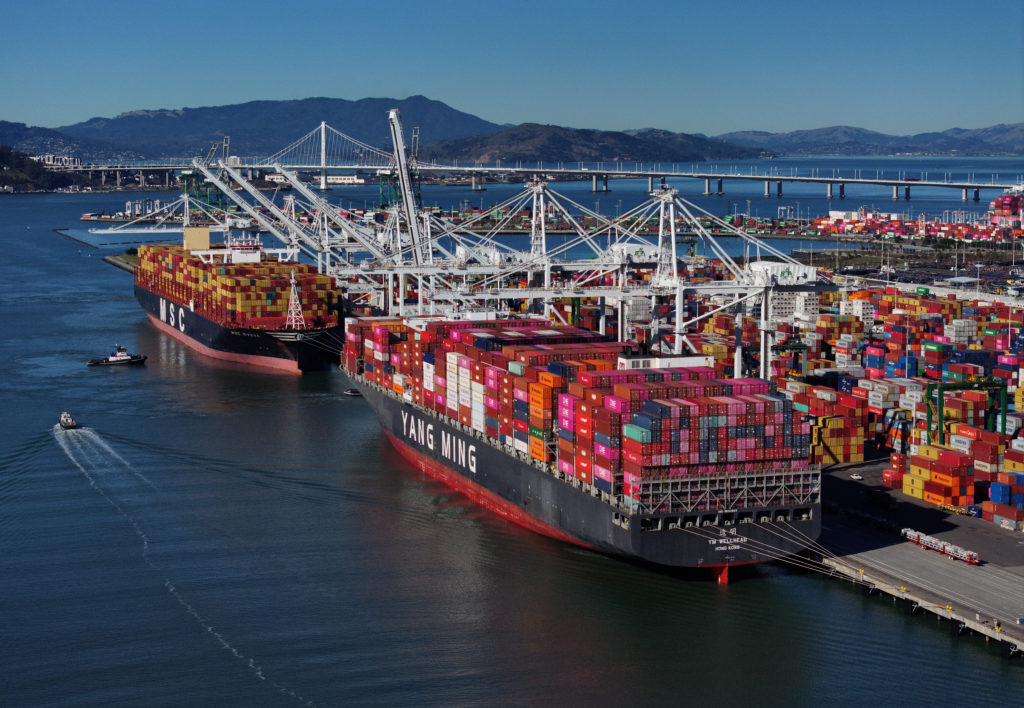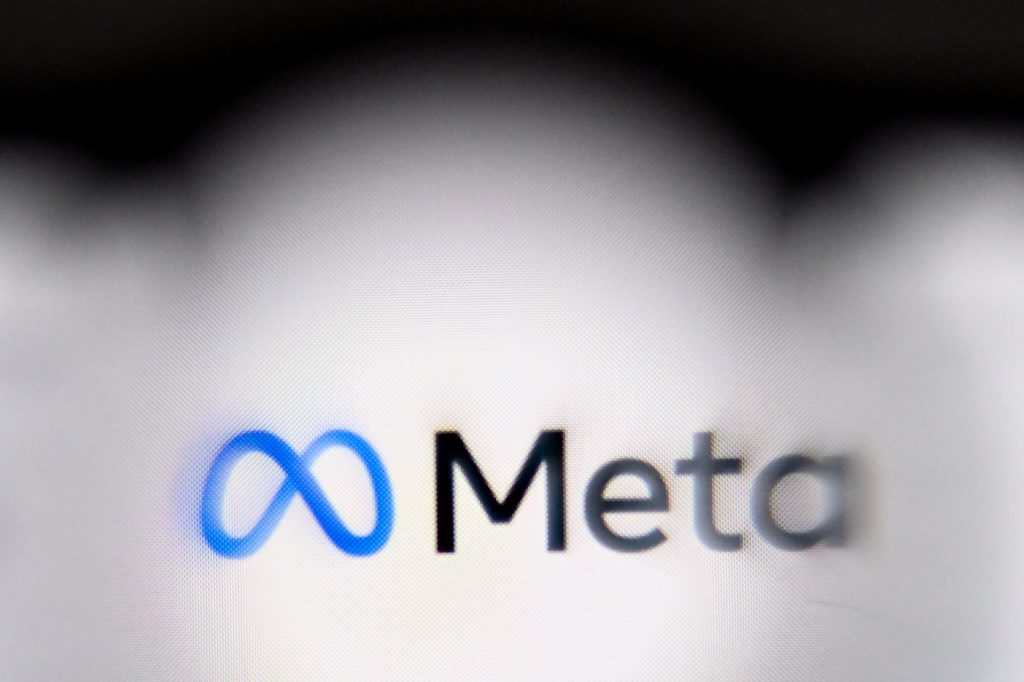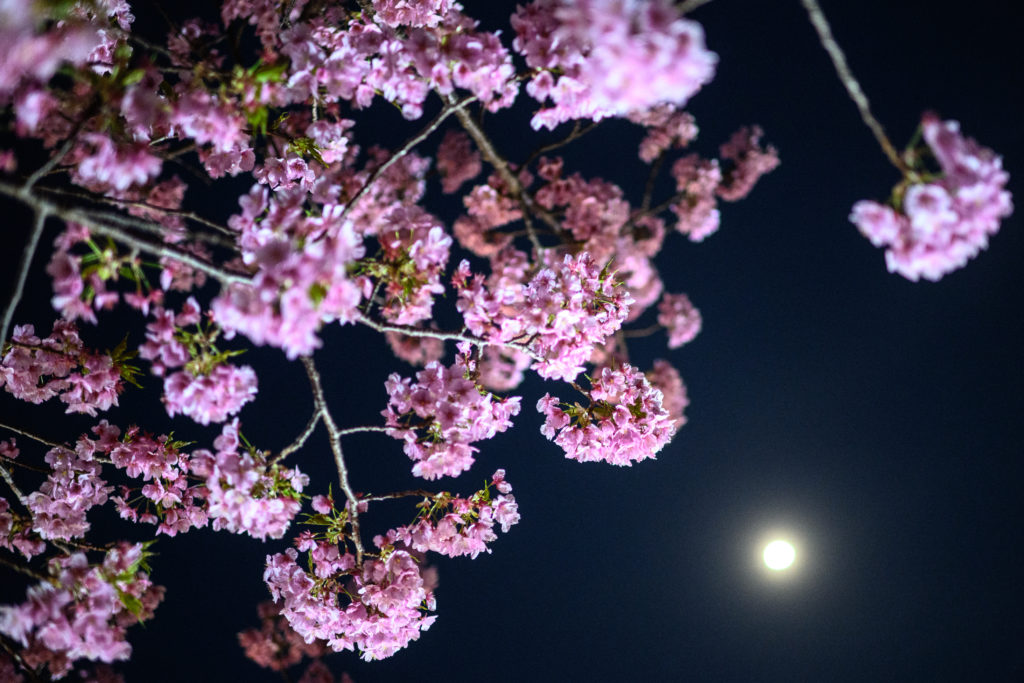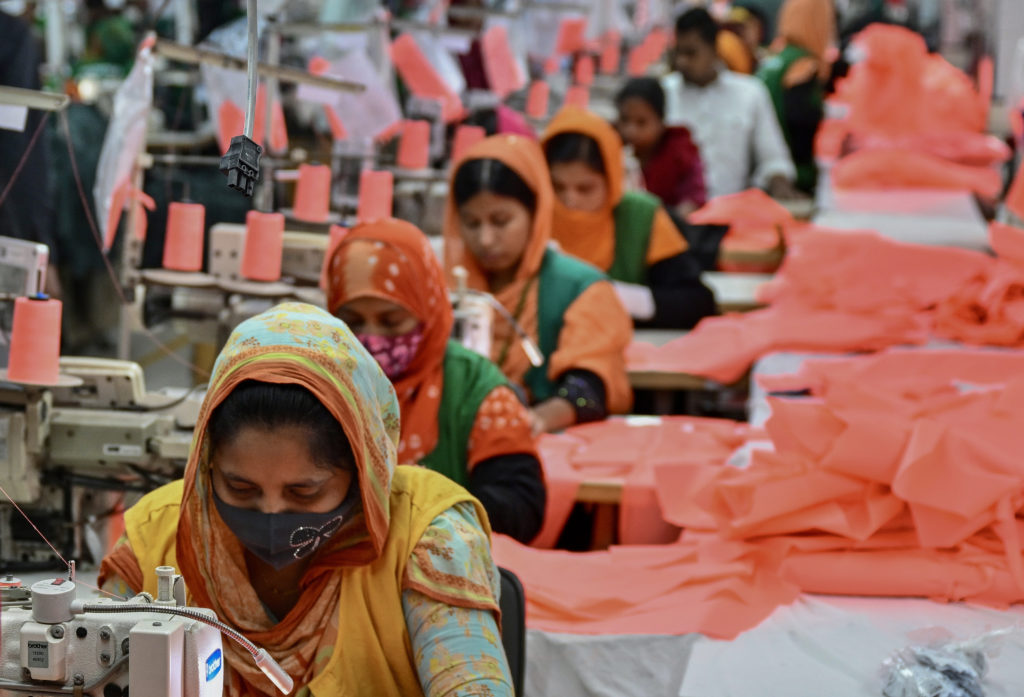Western finance chiefs condemned Moscow’s invasion of Ukraine at G20 talks in Indonesia Friday, accusing Russia of sending a “shockwave” through the world economy and its technocrats of complicity in the war’s alleged atrocities.
The two-day meeting on the island of Bali began under the shadow of a Russian military assault that has roiled markets, spiked food prices and stoked breakneck inflation, a week after Moscow’s top diplomat walked out of talks with the forum’s foreign ministers.
“Russia is solely responsible for negative spillovers to the global economy,” US Treasury Secretary Janet Yellen told the Russian delegation in the opening session, according to a US official, who spoke on condition of anonymity.
“Russia’s officials should recognise that they are adding to the horrific consequences of this war through their continued support of the Putin regime. You share responsibility for the innocent lives lost,” Yellen added, according to the official.
The official did not comment on whether the Russian delegation responded. Russian officials did not immediately respond to an AFP request for comment.
Russia calls its invasion of Ukraine a “special military operation” and blames subsequent Western sanctions for blocked food shipments and rising energy prices.
“Russia tried to say that the world economic situation had nothing to do with the war,” a French delegation source told AFP.
Australian Treasurer Jim Chalmers condemned Russia’s “immoral transgression” against Ukraine, saying that Moscow must take the blame for the impacts on the global economy caused by the war.
“Russia’s unjust actions have had terrible human cost but they’ve also increased global uncertainty,” Chalmers said, according to a transcript. “Russia must take full responsibility.”
Canadian Finance Minister Chrystia Freeland told Russia’s delegation they were responsible for “war crimes” in Ukraine because of their support for the invasion, a Canadian official said.
“It is not only generals who commit war crimes, it is the economic technocrats who allow the war to happen and to continue,” said Freeland, according to the official.
Both Russian Finance Minister Anton Siluanov and Ukrainian Finance Minister Serhiy Marchenko participated virtually in the meeting.
Moscow sent Russian Deputy Finance Minister Timur Maksimov to attend the talks in person. He was in the room as Western officials expressed their condemnation, according to a source present at the talks.
Ukraine’s Marchenko said Russia’s invasion of Ukraine “clearly marks the end of the existing world order”, and blamed Moscow for the world facing hunger, inflation and energy insecurity.
“We need to stop the cause of these problems. The true practical solution… is imposing more severe targeted sanctions,” he told ministers, according to the Ukrainian finance ministry.
– ‘Weaponising’ food –
Indonesian Finance Minister Sri Mulyani Indrawati warned her counterparts that failure to tackle energy and food crises would be “catastrophic”.
The meeting has largely focused on those impacts of the war that are weighing on an already brittle global recovery from the Covid-19 pandemic.
“(Russian President Vladimir) Putin’s actions… amounts to using food as a weapon of war,” Yellen said in an afternoon seminar.
In another session, she said Russia’s “unjustified war” has sent a “shockwave” through the global economy.
Indrawati said members had “identified the urgent need for the G20 to take concrete steps” to address food insecurity and to help countries in need.
Yellen has pressed G20 allies for a price cap on Russian oil to choke off Putin’s war chest and pressure Moscow to end its invasion while bringing down energy costs.
In April, the US treasury secretary led a multinational walkout of finance officials as Russian delegates spoke at a G20 meeting in Washington, but there was no such action on Friday.
There is unlikely to be a final communique issued when talks end on Saturday because of the disagreements with Russia.
– ‘Act together’ –
G20 chair Indonesia -– which pursues a neutral foreign policy –- refrained from disinviting Russia despite Western pressure.
Chinese Finance Minister Liu Kun, Britain’s new Finance Minister Nadhim Zahawi and European Central Bank President Christine Lagarde attended the meeting virtually.
World Bank chief executive David Malpass did not attend, while International Monetary Fund chief Kristalina Georgieva appeared in person after saying Wednesday that the global economic outlook had “darkened significantly” because of Moscow’s invasion.
The meeting is a prelude to the leaders’ summit on the Indonesian island in November that was meant to focus on the global recovery from the Covid-19 pandemic.
Other issues being tackled by the ministers included digital financial inclusion –- with more than a billion of the world’s population still without access to a bank account -– and the deadline for an international tax rules overhaul.

